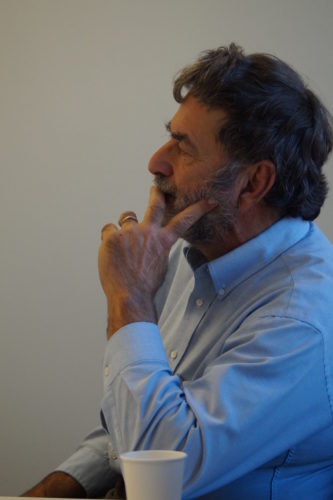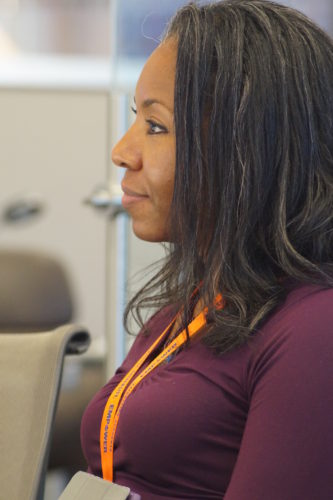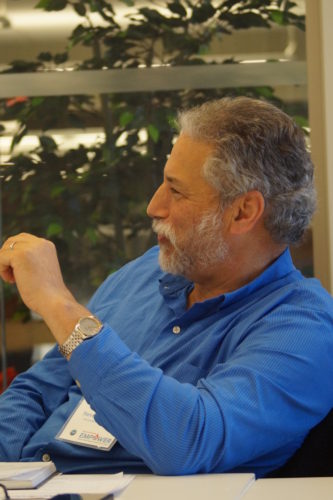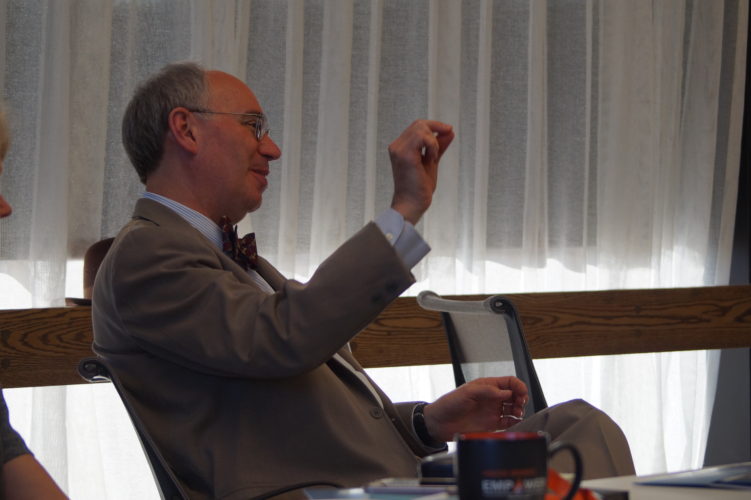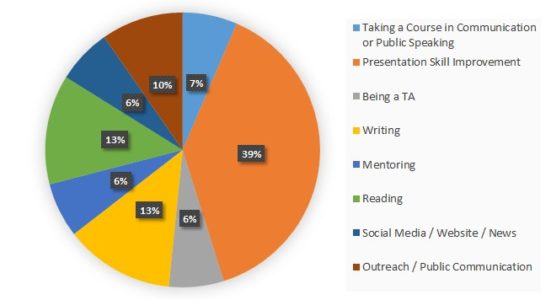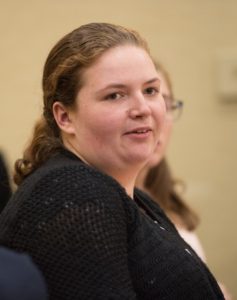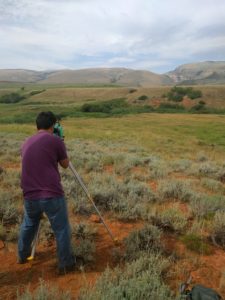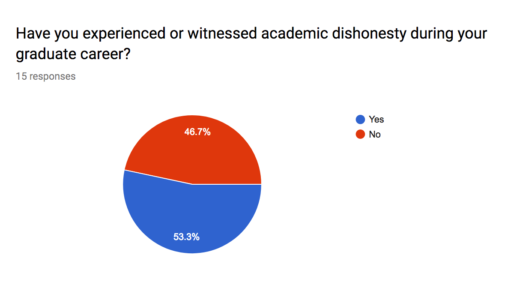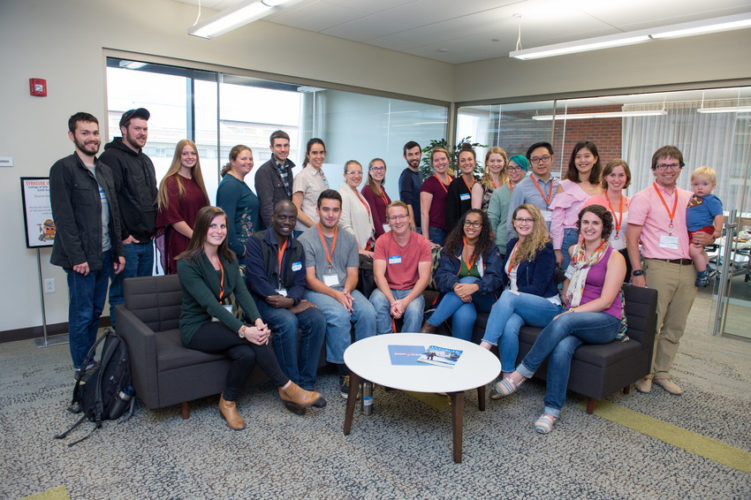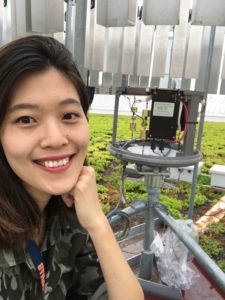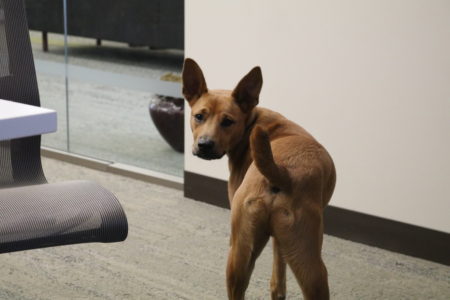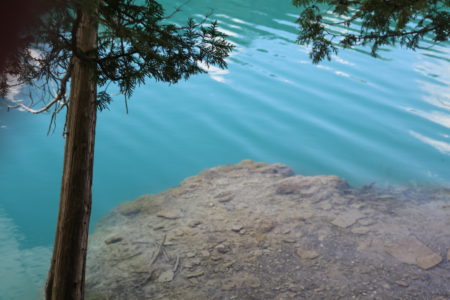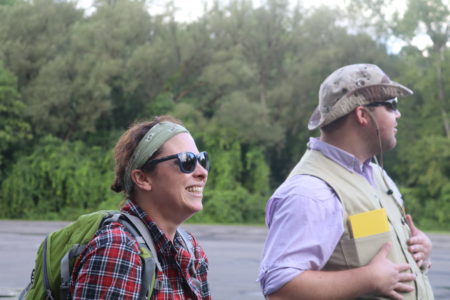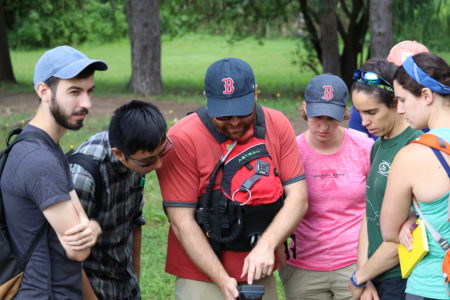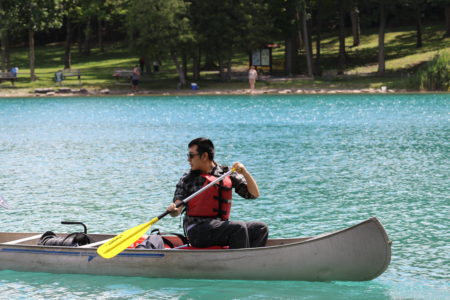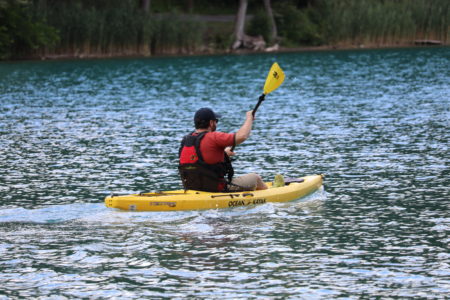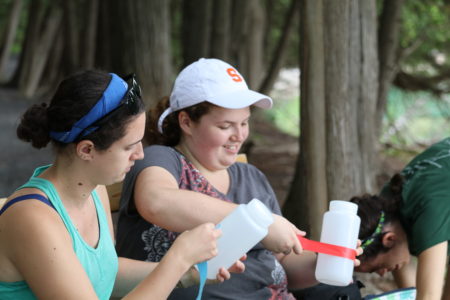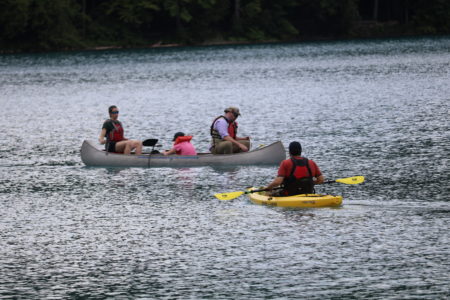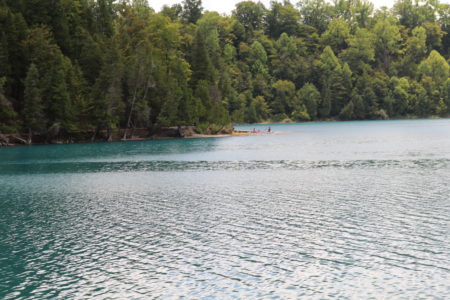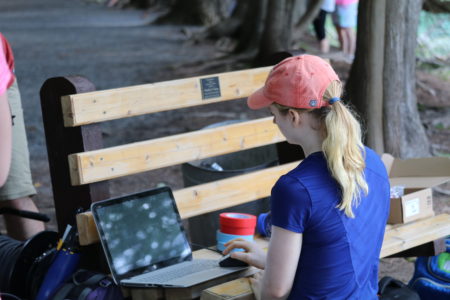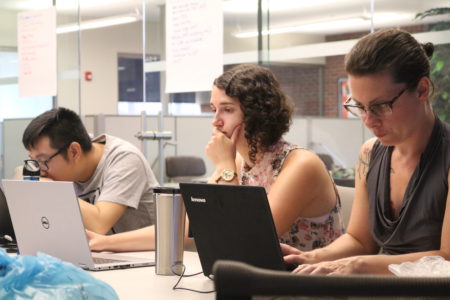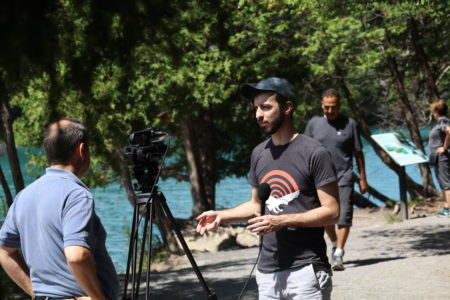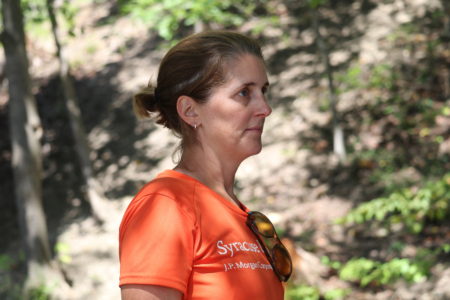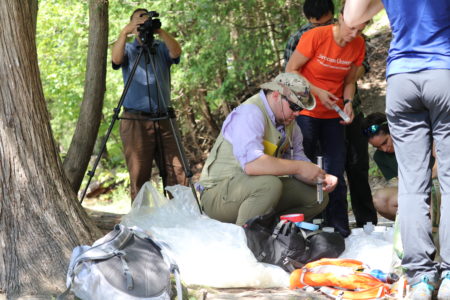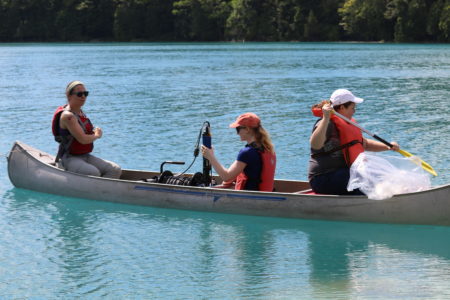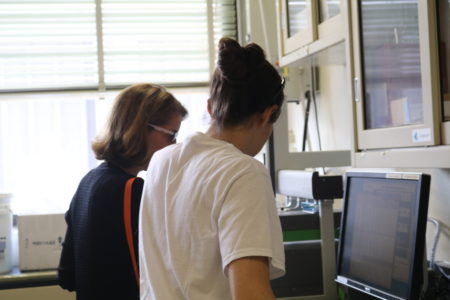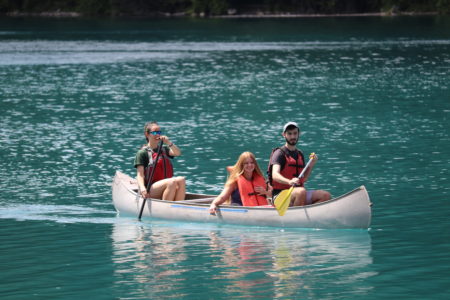On Thursday, October 5, EMPOWER hosted a day-long meeting with the External Advisory Committee (EAC) to discuss the program’s design and implementation. This is the second time they visited campus since the program’s inception.
EAC consists of some of the biggest names in energy, advocacy, government research, environmental consulting and STEM education. They are Kevin Bohacs, a senior research scientist at ExxonMobil; Gillian Dunlop, a risk assessor at Stantec; Steven Hamburg, a chief scientist at the Environmental Defense Fund; William Kappel, a hydrogeologist emeritus with the U.S. Geological Survey; and Aisha Morris, director of the Research Experiences in Solid Earth Science for Students, an internship program managed by UNAVCO, a nonprofit university-governed consortium.
The morning was filled with information and panel sessions, where the committee members had the opportunity to learn about EMPOWER’s accomplishments over the past two years. EMPOWER NRT PI Laura Lautz kicked off the morning with a discussion of the NSF’s Research Traineeship program and a detailed description of each of EMPOWER’s training elements.
After these introductory remarks, the EAC members were treated to a series of EMPOWER graduate student-led panels. Panels were focused on the various training elements of EMPOWER, including the courses that students have taken to cultivate transferrable skills, the professional development activities designed to enhance professional skills, the seed grants that students have pursued, and the career pathway experiences that students have completed.
In the afternoon, the committee members heard lightening research talks from Amanda Campbell, Darci Pauser, Alexa Stathis, and Yige Yang. The advisors were really interested in the range of research topics and had many questions for the panelists!
Despite a busy day, the EAC members spent a lot of the afternoon chatting with students in small groups about the range of career options that are available to research scientists. Many of the EMPOWER trainees came away with new ideas about careers to consider.
Thanks to everyone who participated in the meeting and made the day a success!
